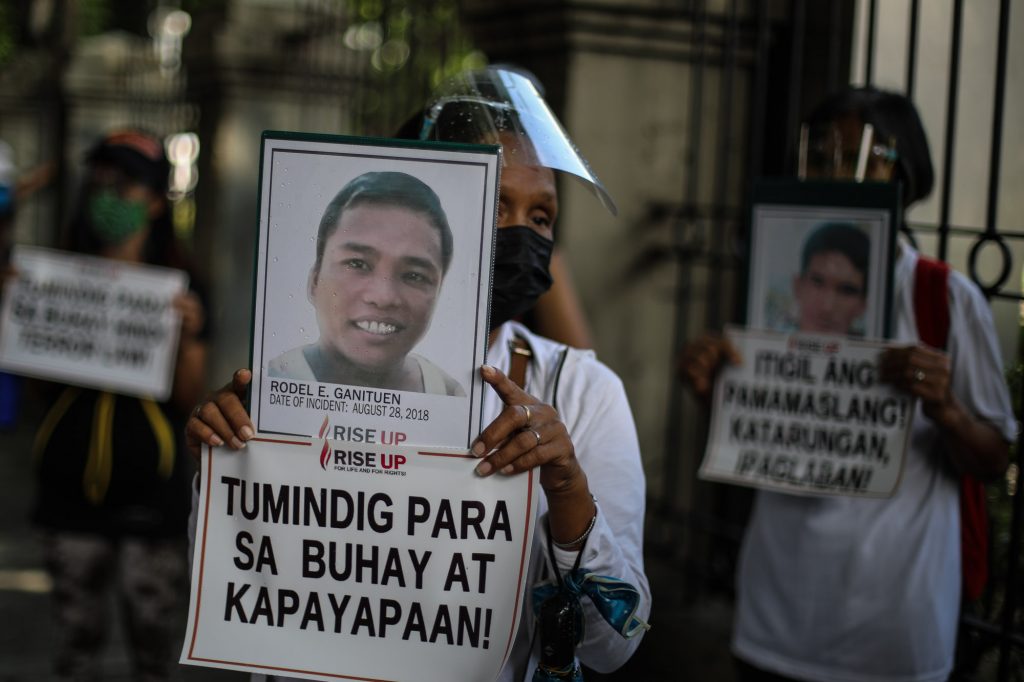
An interfaith church group in the Philippines issued a statement calling for President Rodrigo Duterte’s accountability over the spate of drug-related killings that started early in his administration in 2016.
“These state-sanctioned killings are diabolical as these are not just a violation of human rights but a desecration of life itself which we hold sacred,” read a statement from the group that calls themselves “One Voice.”
The statement, which was released on June 29, bears the signature of Catholic and Protestant Church leaders, including Bishop Broderick Pabillo of Taytay, Bishop Reuel Marigza of the National Council of Churches in the Philippines, and Bishop Rhee Timbang of the Iglesia Filipina Independiente.
Sister Rowena Pineda of the Sisters Association in Mindanao, Sister Ma. Lisa Ruedas of the Daughter of Charity’s Justice, Peace and Integrity of Creation Ministry, and Brother Armin Luistro, provincial superior of the De La Salle Brothers in East Asia, also signed the statement.
The group expresses support for the call of prosecutor of the International Criminal Court for a full investigation into alleged crimes against humanity, torture and extrajudicial killings supposedly committed in connection with the Philippines’ war on drugs.
The church leaders claim that over 27,000 people have been killed, “most of them poor and from marginalized communities, in police operations resulting in extrajudicial killings” in the past five years.
Philippine authorities have repeatedly denied the claim, saying that there were only over 5,000 people who died after “fighting back” arresting officers during police operations since the “war on drugs” was launched in 2016.
Quoting Bible verses, One Voice says that since Duterte came to power five years ago, the Filipino people “have seen the ‘valley of dry bones’ growing as a result of the war on drugs.”
“We demand that Duterte and those who orchestrate and execute these state-sanctioned murders be held accountable,” reads the One Voice statement.
It adds that the war on drugs is “evil as it is designed and orchestrated by the most powerful in government against those who have been disempowered and oppressed.”
“The crimes done to the victims of this bloody war is not just an attack on a person, their loved ones, families and friends. It is a crime that endangers us all,” says the group.
Fatou Bensouda, former ICC chief prosecutor, announced early this month the conclusion of the preliminary examination into the situation in the Philippines and requested judicial authorization to proceed with a formal criminal investigation.
Bensouda said “crimes against humanity” could have been committed in the country since 2016 with the implementation of the government’s “war on drugs.”
The presidential palace said Duterte will never cooperate with the ICC investigation, adding that any decision to move forward with the investigation “is legally erroneous, politically motivated.”
Even as the Philippines have already withdrawn from the Rome Statute, “the ICC retains jurisdiction over the Philippine territory during the period it was a State Party from 01 November 2011 up to 16 March 2019,” said Bensouda.
The Rome Statute of the International Criminal Court is the treaty that established the International Criminal Court. It was adopted at a diplomatic conference in Rome, Italy on July 17, 1998, and it entered into force on July 1, 2002.
The Philippines ratified the Rome Statute on August 30, 2011, and it entered into force from Nov. 1, 2011.
The Philippines officially withdrew from the ICC on March 17, 2019, a year after Duterte publicly announced the nation’s withdrawal. The withdrawal was triggered by ICC’s initiation of the investigation into the “war on drugs” in the Philippines.
Source: Licas Philippines
0 Comments